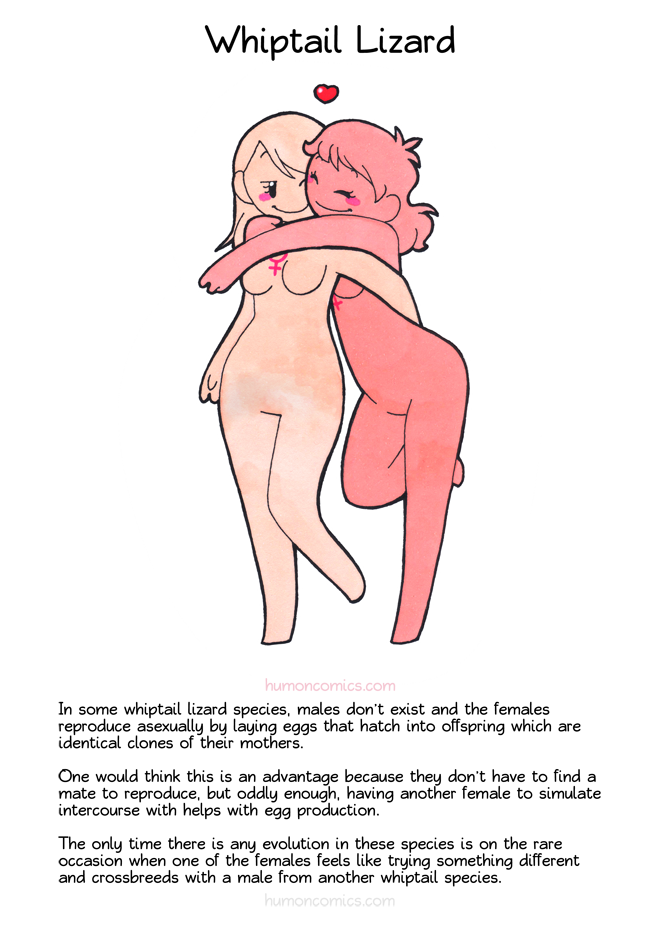
Whiptail Lizard
You can get a whole book of these.
The physical book for your hands and bookshelf can be purchased here.
A digital version can be purchased from this widget:
Animal Lives
11th May 2016
Community made Fan Art:
10 years ago #9484195
Another noteworthy quirk: These asexual species result when two sexual whiptail species decide to mate.
0
0
Another noteworthy quirk: These asexual species result when two sexual whiptail species decide to mate.
10 years ago #9482942
There was a little not-for-profit cafe in San Francisco around 1996, intended as a gathering place for lesbians and bi women, named The Whiptail Lizard Lounge. Truth! It was near the corner of 18th and Guerrero. The space is now occupied by the Bi-Rite Creamery (which I suppose is amusing in itself if you're into wordplay).
0
0
There was a little not-for-profit cafe in San Francisco around 1996, intended as a gathering place for lesbians and bi women, named The Whiptail Lizard Lounge. Truth! It was near the corner of 18th and Guerrero. The space is now occupied by the Bi-Rite Creamery (which I suppose is amusing in itself if you're into wordplay).
Add comment: Please Sign in or create an accout to comment.
Copyright © 2009-2026 Humon Comics
Artist's Journal | Artist's Twitter | contact@humoncomics.com | Privacy Policy










M
The "no evolution" thing isn't entirely true, mutation and selection still happens even with parthenogenetic reproduction. What's true however is that there's no active selection element to it. In most sexually reproducing animal species, mate selection plays a huge part in which genes are passed on and which aren't. Without mating, things get a lot more random.